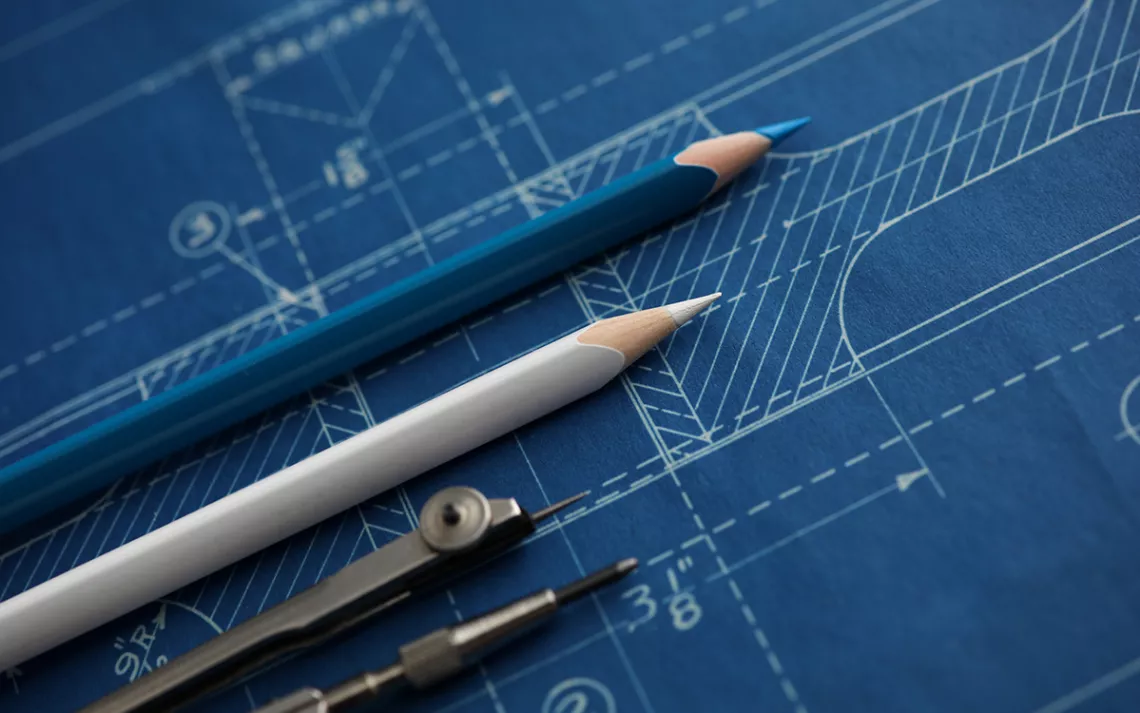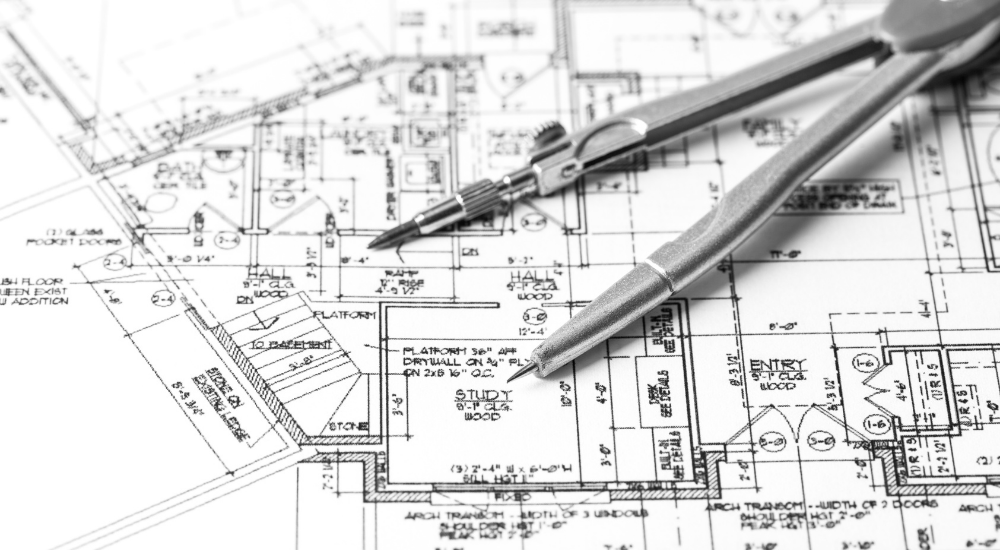Architect Design Movements to Track in the Coming Future
Architect Design Movements to Track in the Coming Future
Blog Article
Discover the Necessary Skills and Qualities Every Architect Need To Possess
As a designer, you recognize that success in your field goes past just technical abilities. It has to do with blending imagination with functionality, promoting cooperation, and handling jobs effectively. Each quality plays a vital duty in your capacity to create spaces that motivate and work well. What are the particular abilities that can absolutely establish you apart? Let's discover the necessary qualities every Architect must grow to grow in this ever-evolving career.
Creative Thinking and Technology
Creative thinking and development are at the heart of architecture, driving the layout of spaces that motivate and work seamlessly. You'll continuously discover new products, methods, and technologies to boost your styles.
You'll also attract ideas from numerous resources-- nature, art, and also everyday life can trigger fresh concepts. This capacity to blend creativity with functionality permits you to attend to complex issues, ensuring your styles fulfill both functional and visual requirements.
Solid Communication Abilities
While designing remarkable rooms calls for creative thinking, solid interaction skills are just as important for architects. You require to share your ideas clearly to clients, contractors, and group participants. Paying attention is just as vital; understanding your customer's vision assists you create styles that absolutely meet their needs.
You'll frequently need to describe complex ideas in a manner that's simple to comprehend, whether you exist a proposition or reviewing materials. Reliable communication fosters collaboration, ensuring everyone gets on the exact same page throughout the task.
Building relationships is vital, too. When you develop trust and relationship, customers are more probable to share their concerns and comments, bring about far better outcomes.
Finally, do not undervalue the power of body movement and visual help. They can improve your message and make your presentations more appealing. Strong communication skills not only elevate your layouts yet also enhance your professional partnerships in the architectural world.
Technical Effectiveness in Design Software Program
As you browse the ever-evolving globe of design, mastering style software comes to be important for equating your imaginative ideas into concrete plans. Acquainting on your own with programs like AutoCAD, Revit, and SketchUp will not only improve your layout capabilities yet additionally improve your process. These devices enable you to produce in-depth illustrations, 3D versions, and even simulations that can help you visualize and present your ideas a lot more properly.
Being skillful in these software program applications also improves your cooperation with specialists and engineers, as everybody can work from the same digital structure. In addition, your ability to adapt to new innovations will certainly keep you affordable in the area. Consistently upgrading your skills and checking out brand-new attributes can establish you besides your peers, guaranteeing your designs are precise and cutting-edge. Eventually, technical efficiency in design software is a cornerstone of effective architecture, helping you bring your visions to life.
Understanding of Engineering Concepts

Recognizing engineering concepts additionally enables you to prepare for possible difficulties early in the layout process. You can make informed selections that boost your layouts when you're mindful of exactly how different materials behave under various conditions. Your layouts need to not just be visually pleasing but lasting and likewise practical.
In addition, a strong understanding of design principles allows you to innovate within restrictions. You can press creative limits while still sticking to safety and security standards. Eventually, this understanding enriches your architectural method and sets you apart in a competitive area.
Job Monitoring Abilities
Effective task management capabilities are important for designers, allowing you to oversee all elements of a project from perception to conclusion. You'll need to collaborate with numerous stakeholders, consisting of customers, professionals, and designers, guaranteeing every person's on the exact same web page. Setting clear objectives, timelines, and budgets is basic; it assists you keep the project on the right track and within extent.
As an engineer, you ought to additionally be skilled at danger administration, recognizing prospective problems before they escalate. Strong interaction abilities are necessary, enabling you to express your vision and inspire your team. You'll take advantage of being organized and detail-oriented, as this aids enhance procedures and stay clear of expensive hold-ups.
Additionally, versatility is essential; tasks usually advance, and being adaptable enables you to respond efficiently to changes. Eventually, your job monitoring skills useful source can greatly impact the success of your architectural undertakings, guaranteeing you supply high quality outcomes on time and within budget plan.
Attention to Detail
While managing jobs is necessary, your interest to information can make a substantial difference in the top quality of your job. Every line you draw, every product you pick, and every little requirements you note adds to the general success of a job. You require to be precise, ensuring that your layouts not just satisfy aesthetic requirements however also abide by developing codes and regulations.
Missing even a small information can result in pricey modifications or security problems down the line. By cultivating a keen eye for information, you improve your capability to find possible troubles prior to they escalate. This vigilance not just saves you time and resources but additionally develops your online reputation as a trusted Architect. Keep in mind, it's usually the smallest details that elevate a project from excellent to outstanding. Welcome this ability, and allow it lead your design procedure, guaranteeing that your vision is implemented flawlessly.
Versatility and Problem-Solving Abilities
As an architect, you'll usually face unexpected adjustments in layout and task needs. Your capacity to welcome these shifts and locate cutting-edge services is vital for success. Staying adaptable in your approach not only enhances your problem-solving skills but additionally keeps your tasks on the right track.
Embracing Change in Layout
Accepting adjustment in layout is vital for designers, specifically when guiding advancing client demands and emerging technologies. You require to grow versatility, as projects commonly change direction based on new insights or restraints. Being open to alter allows you to discover cutting-edge techniques and develop remedies that resonate with your customers.
When confronted with obstacles, your analytic abilities enter into play. You'll often require to reconsider concepts and change intend on the fly, guaranteeing that the last end result lines up with the client's vision while fulfilling safety and regulatory standards. By being resourceful and flexible, you not only enhance your styles but likewise build trust with your clients, verifying that you can browse the complexities of contemporary design effectively.
Ingenious Solutions to Obstacles

Adaptability in Task Monitoring
While steering the complexities of job administration, adaptability comes to be a vital possession for architects. You'll frequently deal with unexpected challenges, from layout adjustments to budget plan restrictions, requiring quick reasoning and adaptability. Accepting modification enables you to pivot your approaches and discover ingenious services, ensuring job success.
Solid problem-solving skills are important; they allow you to analyze situations, consider alternatives, and apply effective services on the fly. When collaborating with diverse groups, being open to responses and different concepts fosters cooperation and stimulates creative thinking.
Frequently Asked Questions
What Educational History Is Required to Come To Be a Designer?
To end up being a designer, you'll need at the very least an expert degree in architecture, usually a Bachelor's or Master's. Completing an internship and getting licensure through exams is necessary for your career development.
Exactly How Essential Is Networking in the Architecture Field?
Networking's crucial in architecture. It aids you build partnerships, find work possibilities, and gain understandings from skilled experts. By linking with others, you improve your occupation potential customers and stay upgraded on sector fads and growths.
What Are the Usual Career Paths for Architects?
Common occupation courses for designers include layout duties in companies, project administration, metropolitan planning, and specialized locations like sustainable architecture. Architect. You might likewise explore mentor or consulting, depending on your experiences and passions
Exactly How Can Designers Keep Updated With Industry Trends?
To remain upgraded with industry trends, navigate here you must frequently participate in conferences, sign up with expert organizations, register for appropriate magazines, and engage with online discussion forums. Connecting with peers additionally aids you acquire understandings right into emerging growths in style.
What Role Does Sustainability Play in Modern Architecture?
Sustainability shapes modern-day architecture by emphasizing power performance, source preservation, and environment-friendly products. You'll create areas that minimize environmental effect, boost owner well-being, and react to climate obstacles, making your designs extra relevant and impactful.
While designing amazing areas calls for imagination, solid communication skills are just as essential for engineers. Strong communication abilities not only boost your designs however likewise strengthen your professional relationships in the architectural world.
Efficiency in style software lays the groundwork for a deeper understanding of design principles, which is important for engineers.As an engineer, you'll usually encounter unexpected adjustments in style and task needs.Accepting modification in layout is crucial for engineers, particularly when steering advancing client requirements and arising modern technologies.
Report this page